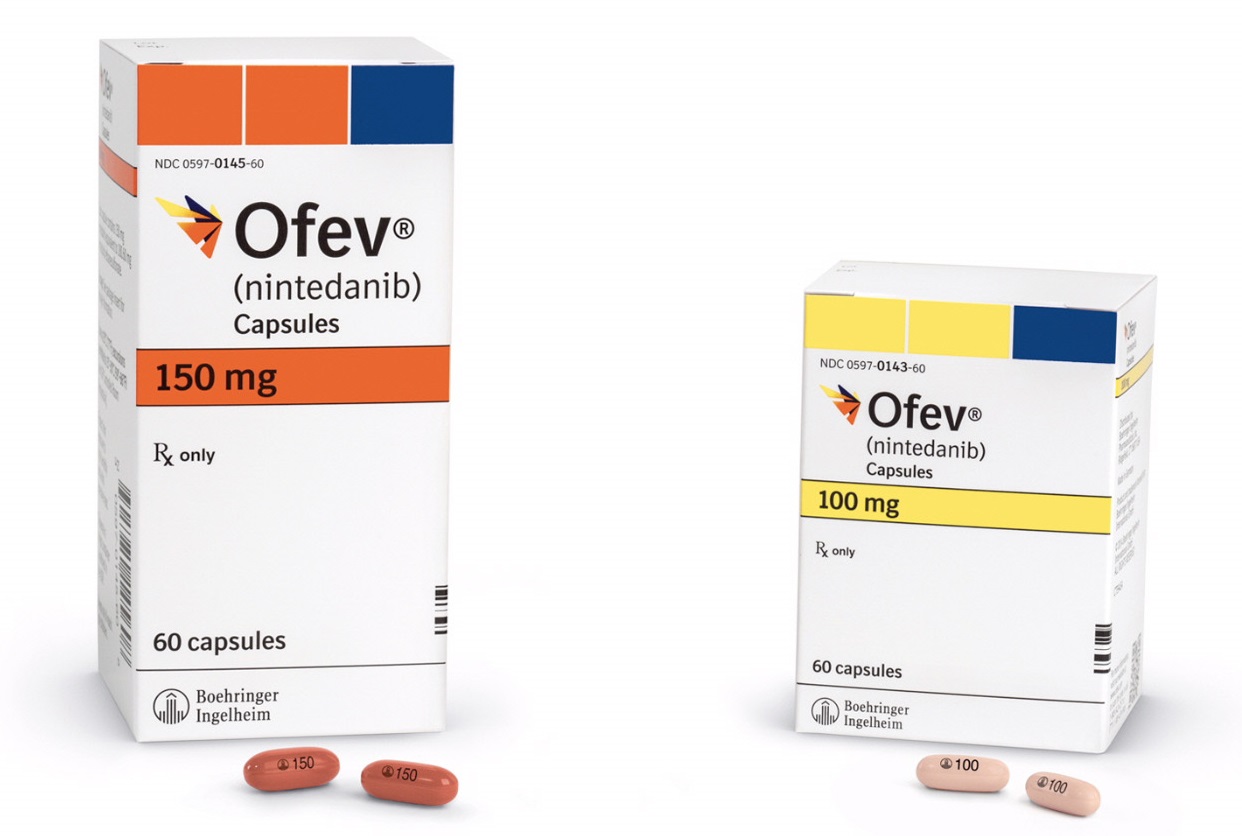Boehringer Ingelheim recently announced new data on OFEV® (nintedanib) that further supports its efficacy, tolerability and safety in patients with idiopathic pulmonary fibrosis (IPF). The results were presented at the American Thoracic Society (ATS) 2015 International Conference from May 15 to 20 in Denver.
IPF is a rare, progressive fatal lung disease in which the lung tissue and alveoli are irreversibly damaged, turning thick and scarred, compromising the oxygen transfer between the lungs and the bloodstream. The generation of scar tissue is known as fibrosis. IPF is characterized by a shortness of breath (dyspnea) that gradually worsens, with respiratory failure being the main cause of death associated with the disease. It is estimated that 14 to 43 individuals per 100,000 suffer from IPF worldwide. There is no cure for the disease and the majority of patients live three to five years after being diagnosed.
Nintedanib is a tyrosine-kinase inhibitor (TKI) that targets growth factors like the vascular endothelial growth factor receptor (VEGFR), which have been shown to be potentially involved in the disease. Boehringer presented data on the ongoing Phase II TOMORROW trial (NCT01170065), and showed that up to the 76th week after treatment, patients given nintedanib had less IPF exacerbations and a lower decline in forced vital capacity (FVC is the amount of air that can be exhaled from the lungs after maximum inhalation), which implicated a reduced IPF disease progression in comparison to the placebo control group. Nintedanib was found to be safe and overall well-tolerated by the patients.
“As IPF is a life-threatening and progressive disease, patients will be on life-long treatment to manage their disease. It is important to assess and continue to monitor the efficacy and safety of OFEV® in these patients,” said the Professor of Pneumology at the Paris Diderot University School of Medicine in France, Dr. Bruno Crestani in a press release. “These data strengthen the evidence supporting the efficacy, safety and tolerability of OFEV® and further our understanding of treating this complex disease.”
The company also presented two other abstracts regarding the INPULSIS trials. The Phase III INPULSIS trial – INPULSIS®-ON (NCT01619085) validated the safety and tolerability profile of nintedanib in IPF patients under treatment for up to 33 months. The second abstract focused on a post-hoc analysis of the INPULSIS trials (NCT01335464 and NCT01335477) and showed a reliable effect of nintedanib treatment on reducing the annual rate of FVC decline in patients with varying degrees of lung function impairment.
[adrotate group=”7″]
“The unique data from post-hoc subgroup analyses from the pooled INPULSIS® clinical trials demonstrate a consistent effect of OFEV® in patients with different degrees of lung function impairment and patients with different radiologic patterns in imaging tests at baseline (…). The results presented highlight the importance of early detection and timely treatment of patients with IPF. In addition, the data presented at the conference includes a wide range of patient types which are representative of patients seen in clinical practice,” said the Director of the Division of Respiratory, Department of Medicine at McMaster University in Canada, Dr. Martin Kolb.
According to the company, Nintedanib is the first targeted IPF treatment with a consistent efficacy in Phase III trials and long-term positive results, which strengthens its value as an IPF therapy.

